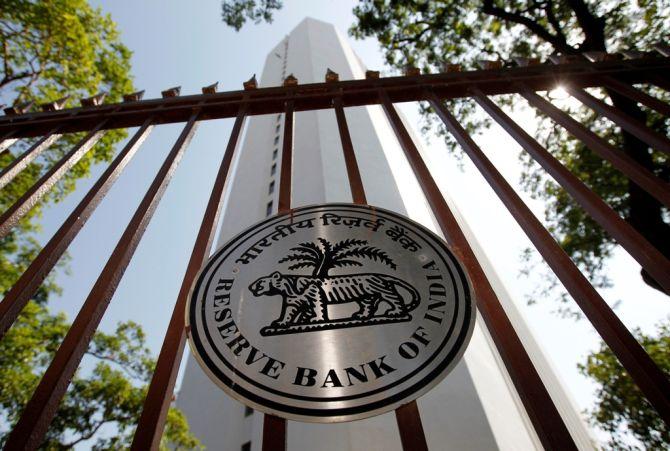Kolkata tops the list with 617 cancellations, New Delhi stands second with 203, followed by Mumbai at 190.
Abhijit Lele reports.

Stepping up oversight over credit companies, the Reserve Bank of India has cancelled the registration of 1,490 non-banking financial companies.
These included NBFCs that failed to meet prudential norms and those that voluntarily surrendered registration.
Kolkata tops the list with 617 cancellations, and New Delhi stands at second spot with 203, followed by Mumbai at 190, according to the data provided by the RBI for parliamentary questions (Lok Sabha).
These cancellations happened owing to non-compliance with mandatory requirements like minimum net-owned funds (NoF) of Rs 20 million, not submitting statutory returns, and companies not being traced at the addresses they gave.
In some cases, NBFCS surrendered the certificate of registration, the RBI said.
The RBI said NBFCs registered with the regulator were subject to on site inspection and off-site monitoring through return submission and statutory auditors' reports.
Analysts said finance companies had become crucial in extending support in the last mile to reach customers where banks experience limitations due to structure and staff strength.
Finance companies have a nimble set-up, reach and flexibility to reach even remotest locations.
NBFCs are a key link in extending credit and other financial services to micro, small and medium enterprises (MSMEs) and those at the bottom of the pyramid across the country.
According to the Financial Stability Report published by the RBI in June 2018, loans and advances of the sector increased 21.2% and investments 13.4%.
The aggregate balance sheet size at the end of March was Rs 22.1 trillion.
Senior NBFC executives said the quality of risk management and governance by finance companies had a bearing on the financial stability of the system.
Defaults by Infrastructure Leasing & Financial Services and its group entities in the second quarter of the current financial year (FY19) were a major setback to the financial system and hit liquidity for finance companies.

The RBI has stepped up supervision and now looks at liquidity management and loan books for asset quality to spot gaps and risks.
The major concerns flagged about finance companies include borrowing short-term for lending to long-term assets, often leading to asset-liability mismatch.
Governance and risk management practices need improvement.
According to the financial stability report, there was a deceleration in the share capital growth of NBFCs, whereas borrowing grew 19.1%, implying rising leverage.
NBFCs have to maintain minimum Tier I and II capital of not less than 15% of aggregate risk-weighted assets.
All finance companies are subjected to prudential regulations such as capital adequacy requirements and provisioning norms, along with reporting requirements.
In March 2018, there were 11,402 of these companies registered with the RBI. Of those 156 were deposit-accepting (NBFCs-D).
There were 249 deemed systemically important non-deposit accepting NBFCs.
The number has come down to 10,102 by the end of September 2018, according to the RBI data.










